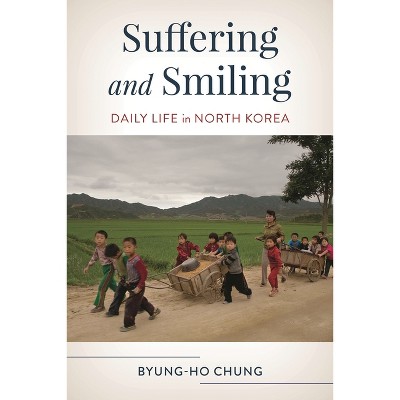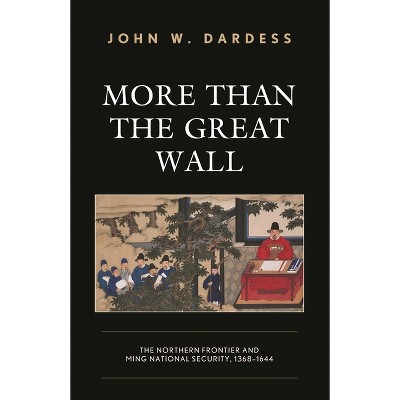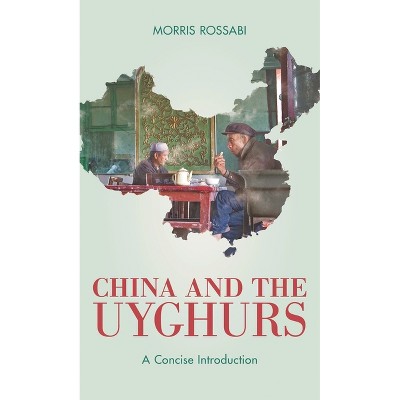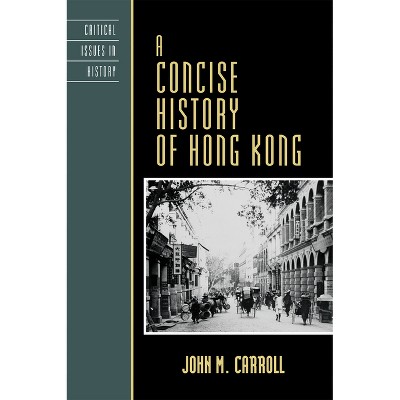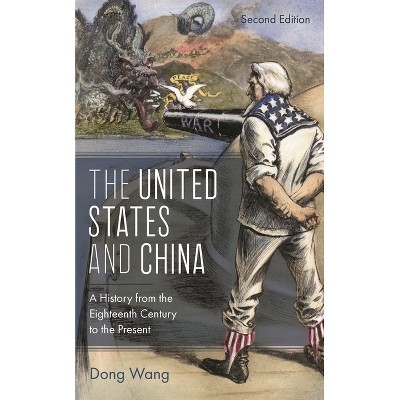Sponsored

Suffering Is My Joy - by D E Mungello (Paperback)
In Stock
Sponsored
About this item
Highlights
- Tracing the little-known history of the first underground Catholic church in China, Mungello illuminates the century between the imperial expulsion of missionaries in 1724 and their return with European colonialism in the 1800s.
- About the Author: D. E. Mungello is professor of history emeritus at Baylor University.
- 186 Pages
- History, Asia
Description
About the Book
Tracing the little-known history of the first underground Catholic church in China, Mungello illuminates the century between the imperial expulsion of missionaries in 1724 and their return with European colonialism in the 1800s. This time of persecution offered an opportunity ...Book Synopsis
Tracing the little-known history of the first underground Catholic church in China, Mungello illuminates the century between the imperial expulsion of missionaries in 1724 and their return with European colonialism in the 1800s. This time of persecution offered an opportunity for the Chinese, rather than Europeans, to control their own church.
Review Quotes
David Mungello concludes his cavalcade across three centuries by telling us that 'the history of the underground church of the eighteenth century is deeply relevant to understanding church-state relations in China today.' This emblematic story, in fact, goes beyond the experience of one single church. The operative word here is 'underground, ' a way for many local communities to go undetected, survive, and resist state authorities and dominant orthodoxies over the course of Chinese imperial and modern history. Even today, underground cultures within religion, the arts, literature, politics, and ethnic and sexual groups continue to offer spaces of expression that represent another China. It is a China to be celebrated, not hidden, policed, and shamed by power, as much yesterday as today.
Over decades, D. E. Mungello has made a name for himself as an accomplished author and meticulous historian. This new work is no exception, drawing on important archival collections and dealing with representations of European Catholic missionaries in late imperial China. Focusing on Matteo Ripa and the Christian Chinese community leaders in his entourage, Mungello addresses the historically difficult topic of indigenization within the Catholic clergy during the premodern era. His book thus portrays a world in flux, where the certainties of the past--both Confucian and European--were beginning to give way to new insights.
The book represents a wonderful combination of macro and micro studies. Although the focus is on the Chinese Catholic underground church, it places it in the context of global Catholicism and cultural exchanges between China and the West. At the same time, it compares the development of Catholicism in China with that in Japan and elsewhere. This research approach helps advance the study of the history of Chinese Catholicism before the Opium War. At the same time, the book provides a wealth of documentation and clues for expanding related research.
This erudite history provides essential new insight into how Chinese priests and lay catechists preserved the Catholic Church when it was forbidden, in the eighteenth and nineteenth centuries. They lived a martyrdom overlooked until Mungello's elegant portrait, based poignantly on diaries written in Latin to avoid detection by hostile local officials. This Suffering Is My Joy is a pearl of a book.
This new monograph by a leading historian of Chinese Christianity makes a major contribution to our understanding of the development of indigenous Catholicism in pre-Opium War China.
This the book is an innovative reading for those interested in Chinese-Catholic historical and ideological interactions. Readers looking for an unusual perspective, i.e., the point of view of the persecuted believers, will find here inspiring material. This Suffering is my Joy answers a plea by scholars in the field by providing narratives of the China mission from the point of view of Chinese persons and from the lives of local communities.
This Suffering is My Joy provides a timely record of how God's people in the eighteenth and early nineteenth centuries responded to government persecution and endured. This historical demonstration of the inability of the gates of hell to prevail against the church of Christ is a most welcome reminder for today's China ministry community of God's unending faithfulness.
About the Author
D. E. Mungello is professor of history emeritus at Baylor University. His books include The Great Encounter of China and the West, 1500-1800, Drowning Girls in China: Female Infanticide since 1650, Western Queers in China: The Fight to the Land of Oz, and The Catholic Invasion of China.





